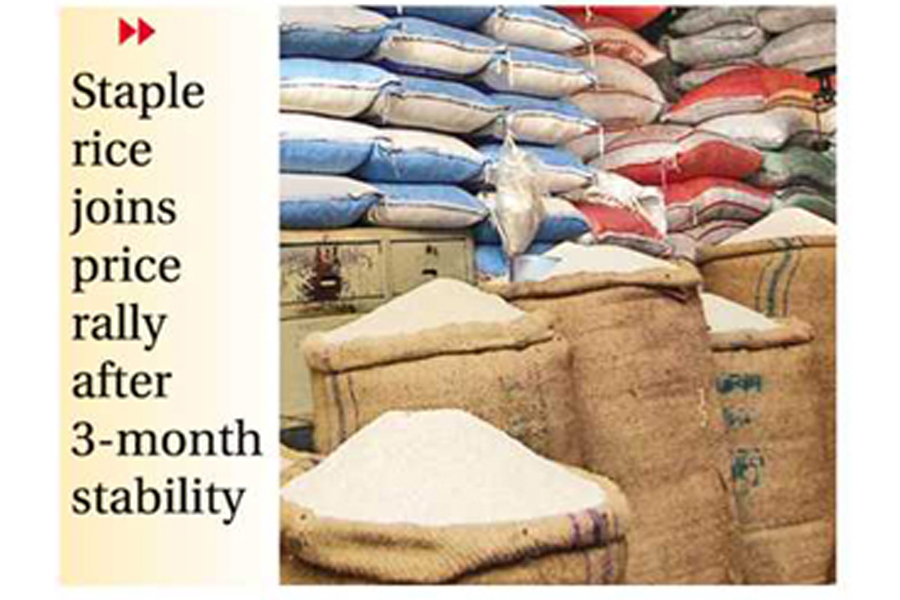
Published :
Updated :

Despite this being the peak harvest season, winter vegetable prices are climbing this year, surprising buyers and leaving them upset.
Vendors blamed low supply for the surging vegetable prices, even though there have been no major disasters or natural calamities.
While staple rice prices remained stable for more than three months, they too have joined the upward trend in the past week.
Non-branded fine rice varieties like Miniket, Najirshail and Jeerashail saw a Tk 5 per kg hike, reaching Tk 70-82 a kg in Dhaka. Branded packet rice remains at previous highs of Tk 75-98 a kg.
However, coarse and medium-quality rice varieties remain unchanged at Tk 52-65 a kg.
The Trading Corporation of Bangladesh (TCB) data shows a 7.15 per cent increase in finer rice prices within a week.
On the kitchen market front, potato prices of both newly harvested and stored varieties now sit at Tk 70-90 per kg, marking a 20-30 per kg increase compared to just a week ago.
This year's prices are even 200-275 per cent higher than last year, according to a December 28 report by the Trading Corporation of Bangladesh (TCB).
Most vegetables have followed a similar trend, leaving buyers baffled. Brinjal now fetches Tk 70-80, cauliflower and cabbage Tk 50-60 each, bottle gourd Tk 80-100 and long-yard beans Tk 90-100.
Even leafy vegetables haven't escaped the rise, costing Tk 12-35 per bunch.
Green papaya remained the cheapest vegetable, trading at Tk 35-45 a kg across the week.
Despite an abundant harvest across the country, all vegetables saw prices increase last week, said Md Hanif, a vegetable vendor in Dhaka's Mohammadpur.
Newly harvested onions offer a brief sigh of relief, retailing at Tk 110-120 per kg, a slight decrease from previous weeks.
However, imported varieties remain high at Tk 130-140 per kg. Local onions from last season have almost vanished from city markets, according to Hanif.
Garlic, on the other hand, is making a comeback with a vengeance. Prices jumped again, reaching Tk 240-300 per kg, a Tk 20-40 increase in just a week.
Imran Hossain Master, president of the Bangladesh Kanchamal Arot Malik Samity (vegetable wholesalers' association), said linked the price hikes to delayed or reduced vegetable and potato production this year.
According to him, heavy rain in October devastated young crops in many districts. Traders and cold storage owners, taking advantage of the seasonal vegetable shortage, have also contributed to the rising potato prices.
Md Ghulam Rahman, vice president of the Consumers Association of Bangladesh (CAB), blamed slack market monitoring as the root cause of the recent price volatility.
He urged the government to increase monitoring of potato, onion and vegetable markets, crack down on market manipulators and provide relief to consumers.
He recommended monitoring rice millers to ensure rice market stability during the peak Aman paddy harvesting season.
tonmoy.wardad@gmail.com


 For all latest news, follow The Financial Express Google News channel.
For all latest news, follow The Financial Express Google News channel.